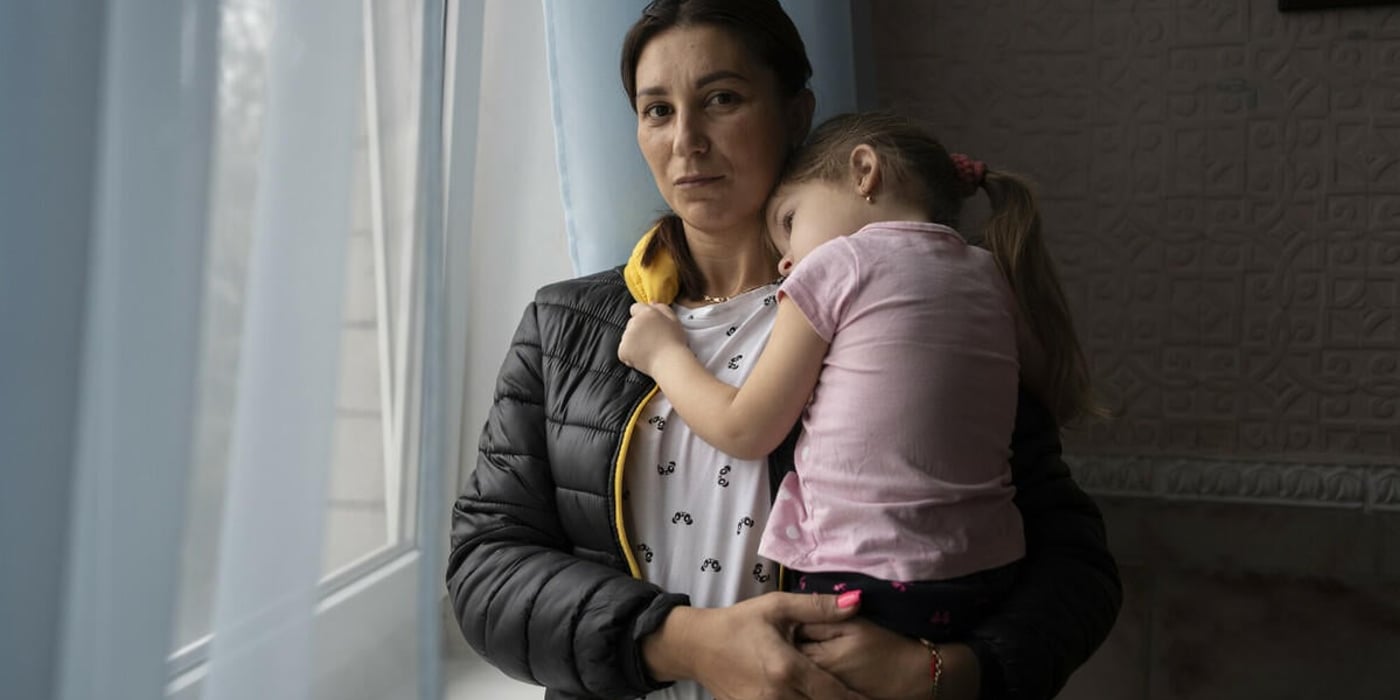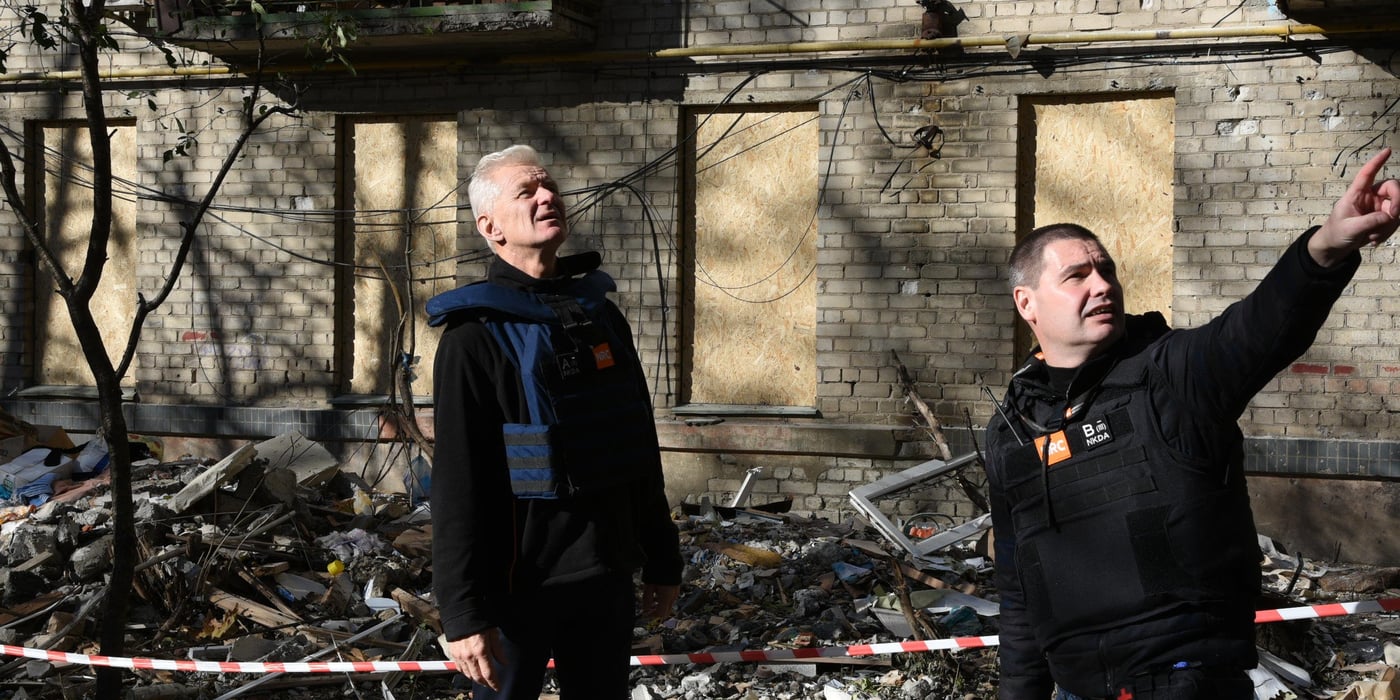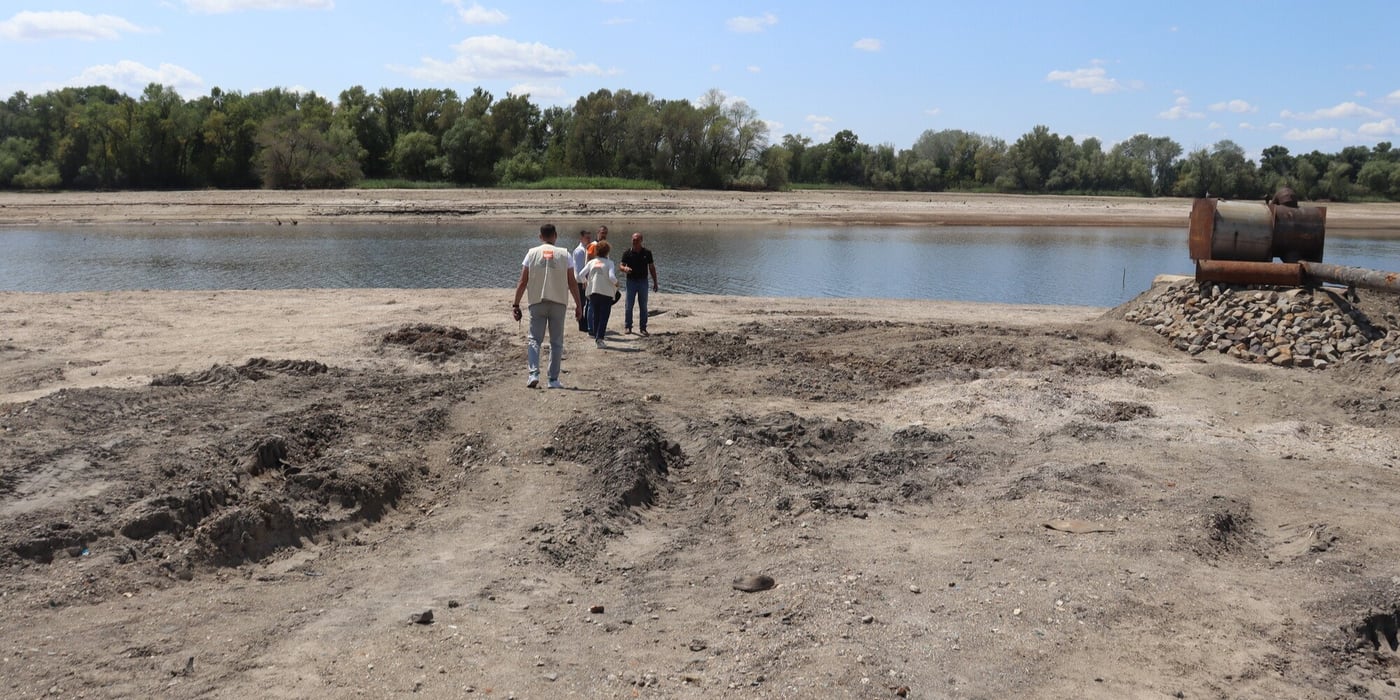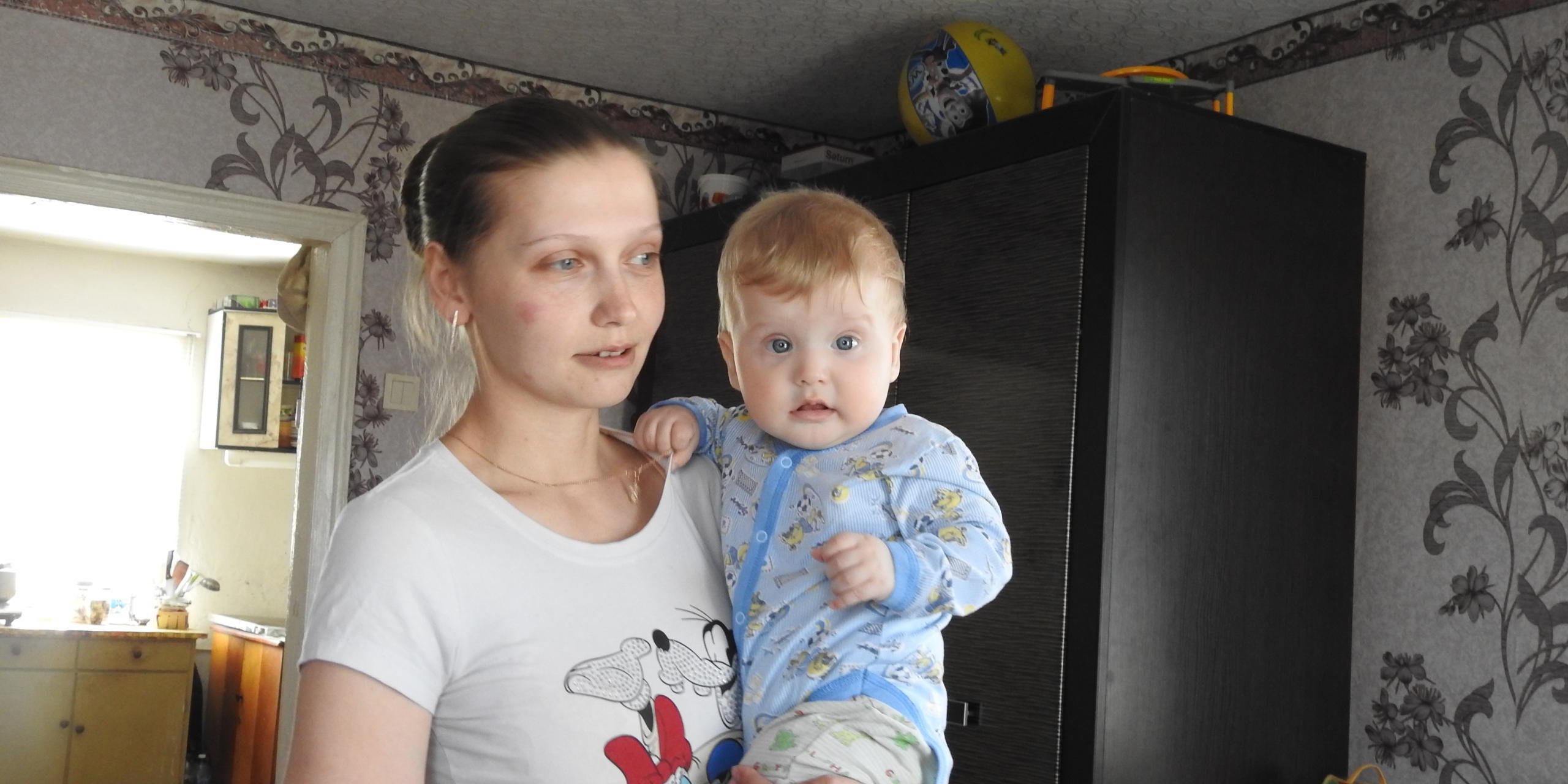
Anastasiia Ursova, 28, comes from Alchevsk, 50 kilometers outside of the Ukrainian city, Luhansk. The town has been controlled by Russian separatists for four years.
The war in Ukraine has lasted four years. Anastasiia Ursova and her family are four out of 4.4 million men, women and children who are paying the price for it. Almost 40 per cent of the people living along the 'contact line' are affected by shelling every day, one of the most mine-contaminated stretches of land in the world. Last year, more than 230 people were either killed or injured by mines. Those and other dangers force civilians to flee from their homes.
A refugee in your own country
In November 2014, Anastasiia and her husband Mikhail took their son and all their belongings to flee their home. "We travelled from one town to another, looking for better opportunities, but we still hoped to return to Alchevsk one day. We had a nice apartment and a summer house," says Ursova.
Together with over a million Ukrainians, Ursova's family is internally displaced. Although they have never received the status of internally displaced people, says Ursova: "The authorities just don't recognise it. And we can't exercise our rights which other displaced people have – monthly government payment or even humanitarian aid."
Getting by
It is rough for the young family to survive. The father Mikhail is the only breadwinner in the family. Their younger son Vadym is eight months only, their elder son Kostia is four years and goes to the kinder garden. The family's monthly income is US$210. They have to do a lot of gardening to have their own fruit and vegetables.
Many Ukrainians grow vegetables in their gardens, but due to Ukraine's harsh winter conditions, the harvest is never enough to get by. Food insecurity has doubled since 2016, leaving 1.2 million people without enough to eat due to lack of funding. Ukraine is one of the world´s most underfunded emergencies, with only 35 per cent of the humanitarian appeal covered in 2017.
"We can't rely on humanitarian aid. For the four years of war it's been four times only that we received assistance from international organisations: food packages and hygiene items. Sometimes we were refused, because we don't have certificates of internally displaced. It was in November when we received the food aid for the last time. And we were told there'll be no more."
Making the best out of it
Today, the Ursova family lives in Nyzhne, a peaceful and quiet village in the government-controlled part of Luhansk region. With the little money they had, they could afford to buy a small old house. Her husband has already reconstructed two bedrooms and a bathroom. The family received new windows from the Norwegian Refugee Council.
Both spouses have college degrees in engineering. Mikhail was able to find a job as an electrician at the local water station. Anastasiia will be able to teach history at school next year.
"My family and I move on. My home is here now. I have many good memories about friends from my hometown, where I spent over 20 years of my life. But we are definitely not going back there," Ursova says.
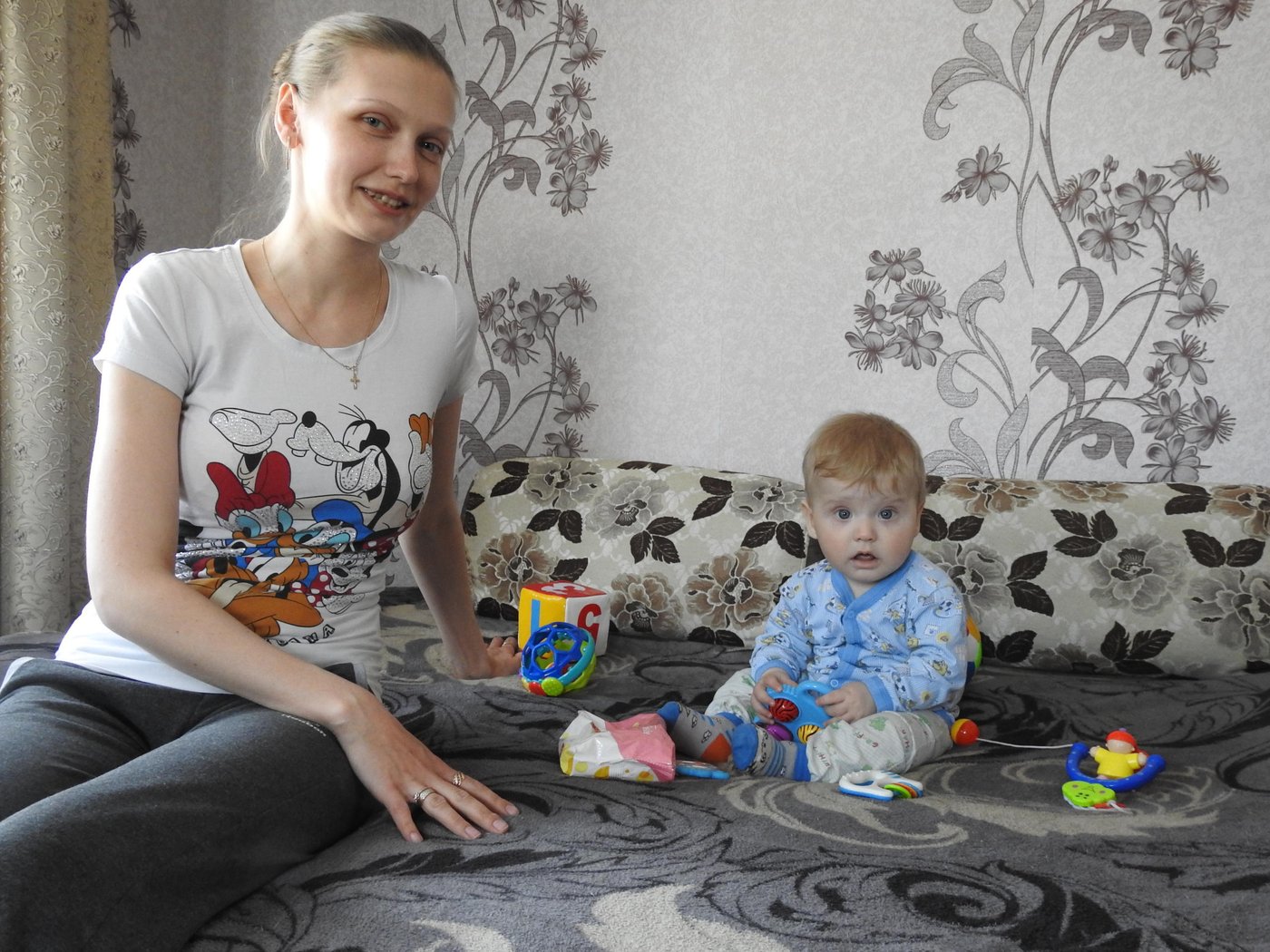
Nothing to go back to
Anastasiia and Mikhail Ursova believe it will take many years to restore order and resume all the services in the occupied territory. Many things have changed drastically for the past four years, while other things seem not to change at all.
Despite many diplomatic efforts and attempts at a ceasefire, the violence has not ceased in eastern Ukraine. Four years into the crisis, 3.4 million people are still being forced to make impossible choices between food, medicine or their children's education.
The humanitarian crisis in eastern Ukraine is complex, severely underfunded and largely forgotten – with no end in sight.


